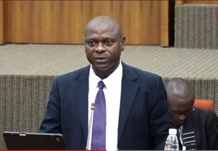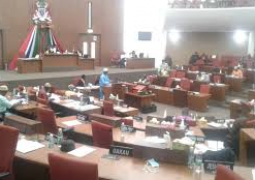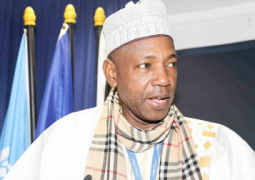
In his mid-year review before the National Assembly, Hon. Keita’s painted a picture of an economy growing in revenue but weighed down by a heavy spending appetite. By the end of June, total expenditure reached D14.51 billion, leaving the country with a mid-year deficit of D724.4 million, despite revenues hitting a record D13.78 billion.
“The expenditure outturn reflects the government’s strong commitment to personnel welfare and critical subsidies in agriculture and energy,” Minister Keita explained.
He highlighted that the public wage bill is now the single largest burden on the treasury, following the civil service pay rise introduced last year. Personnel emoluments consumed a significant portion of expenditure, raising concerns about sustainability.
He said billions are also flowing into subsidies as “groundnut producers are being paid above-market prices to encourage production. Fertilizer, which should retail above D2,000 per bag, is being sold for less than half the price thanks to government intervention. Electricity tariffs remain heavily subsidized, with the state covering over 30% of actual costs per kilowatt hour.”
“These interventions protect farmers and households from crippling prices,” Keita defended, “but they put enormous pressure on public finances.”
He added that another silent drain on the budget is debt servicing. “Interest payments on both domestic and external loans are rising, with the Ministry warning that debt costs will continue to eat into fiscal space.”
Despite these challenges, Keita insisted the situation is “temporary,” blaming the deficit on delays in external budget support from international partners. He expressed confidence that inflows in the second half of the year would restore balance.
But lawmakers were skeptical. Several members asked whether subsidies are truly benefiting ordinary Gambians, or merely creating leakages. Others questioned why “ghost workers” continue to inflate the wage bill, despite repeated audits.
The minister in response assured that everyone is either directly or indirectly benefiting from the subsidies.





